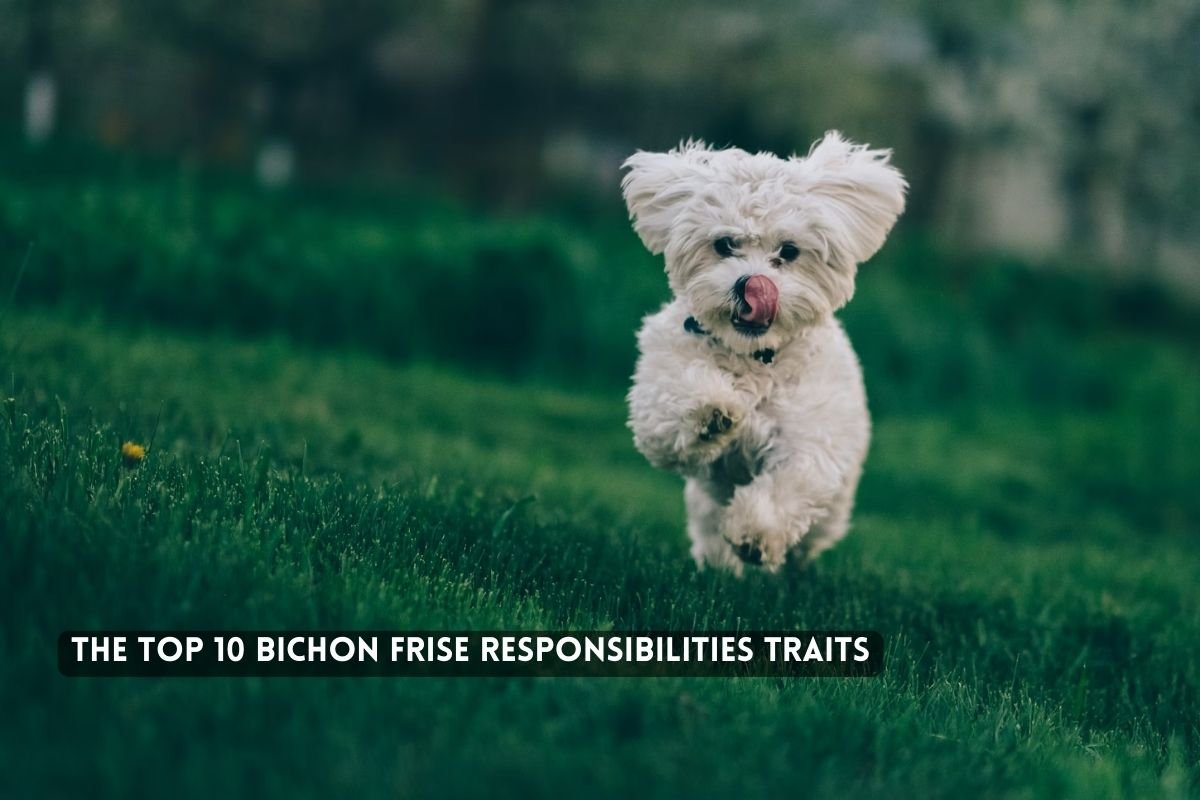Bichon Frises are a beloved breed known for their cheerful disposition, fluffy white coats, and affectionate nature. As owners of these charming dogs, it’s essential to understand the responsibilities and traits associated with caring for them. In this article, we’ll delve into the top 10 responsibilities and traits of Bichon Frises to help you provide the best possible care for your furry friend.
Grooming
Bichon Frises have a luxurious coat that requires regular grooming to prevent matting and maintain their signature fluffy appearance. Weekly brushing, monthly baths, and periodic trimming are necessary to keep their coat healthy and tangle-free.
Exercise
Despite their small size, Bichon Frises are energetic dogs that require daily exercise to stay happy and healthy. Regular walks, playtime, and interactive toys are essential to keep them mentally and physically stimulated.
Socialization
Bichon Frises are social creatures that thrive on companionship. Proper socialization from a young age is crucial to prevent shyness or fearfulness around other dogs and people. Exposing them to various environments and experiences will help them develop into confident and well-adjusted pets.
Training
These intelligent dogs are eager to please, making them relatively easy to train. Consistent and positive reinforcement methods work best with Bichon Frises, whether it’s basic obedience commands or fun tricks. Patience and consistency are key to successful training.
Health Care
Like all dogs, Bichon Frises require routine veterinary care to ensure they stay healthy. Regular check-ups, vaccinations, and parasite prevention are essential for their well-being. Additionally, maintaining good dental hygiene and providing a balanced diet will help prevent common health issues.
Affectionate Nature
Bichon Frises are known for their affectionate and playful demeanor. They thrive on human interaction and enjoy cuddling up with their owners. Their loving nature makes them excellent companions for families and individuals alike.
Adaptability
Despite their small size, Bichon Frises are surprisingly adaptable dogs. They can thrive in various living situations, from apartments to larger homes, as long as they receive enough exercise and attention. Their adaptable nature makes them suitable pets for individuals with different lifestyles.
Intelligence
Bichon Frises are intelligent dogs that excel in learning new tasks and tricks. They enjoy mental stimulation, such as puzzle toys or obedience training, to keep their minds sharp. Engaging their intellect helps prevent boredom and encourages good behavior.
Playfulness
With their lively and playful demeanor, Bichon Frises bring joy and laughter to any household. They love to romp around and play games with their owners, making them ideal companions for families with children or active individuals.
Loyalty
Bichon Frises are incredibly loyal to their owners and form strong bonds with their families. They thrive on love and attention and will remain devoted companions for years to come. Their unwavering loyalty makes them cherished members of the household.
Conclusion
In conclusion, owning a Bichon Frise comes with various responsibilities and rewards. By understanding and embracing their traits, such as affectionate nature, intelligence, and adaptability, you can provide a fulfilling life for your furry friend. With proper care, training, and love, your Bichon Frise will be a loyal and cherished companion for years to come.
FAQs
How often should I groom my Bichon Frise?
Weekly brushing and monthly baths are recommended, along with periodic trimming as needed to maintain their coat.
Are Bichon Frises good with children?
Yes, Bichon Frises are known for their playful and gentle nature, making them excellent companions for families with children.
Do Bichon Frises shed a lot?
No, Bichon Frises are considered a low-shedding breed, but regular grooming is still necessary to prevent matting.
Are Bichon Frises easy to train?
Yes, Bichon Frises are intelligent and eager to please, making them relatively easy to train with positive reinforcement methods.
How much exercise do Bichon Frises need?
Bichon Frises require daily exercise, including walks, playtime, and mental stimulation, to keep them happy and healthy.
